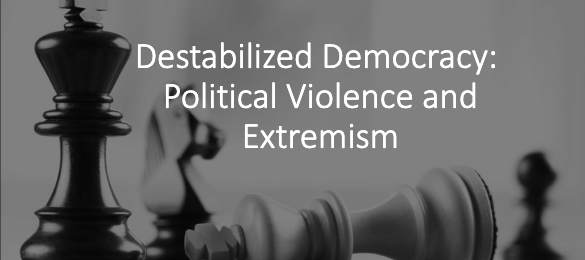
https://www.ag23.net/buy-ambien-cr-canada There is no typical lawyer. With specialization there are substantial differences in workload, client interaction, work environment, compensation and overall quality of life. In addition, the legal profession and economy has changed substantially even since I was called to the Bar in 1990. There are no guarantees today to a successful practice, a job, or a “substantial” salary, not even if you graduated at the top of your class from one of the best law schools in Canada.
https://www.club-italia.com/2024/06/zolpidem-10mg-buy-onlinehttps://exitoffroad.com/ambien-buy-online-overnight Stress is a fact of life. As noted by the Canadian Bar Association (CBA), “workplace challenges can have a particularly profound impact on wellbeing. Indeed, the professional and interpersonal environment in which lawyers function appears at times to have been tailored to elicit feelings of distress!”[1]
https://arkipel.org/purchase-ambien-overnight-delivery A key finding by the CBA’s Legal Profession Assistance Program survey confirmed that “stress / burnout (94%) and anxiety (68%) are the two most prevalent issues facing lawyers” in Canada.[2]
https://creightondev.com/2024/06/24/ambien-sales-online Although lawyers are 3.6 times more likely to suffer depression than non-lawyers, stress also has a substantial impact on other professions and the general public.
Purchasing Zolpidem- Up to 40% of US doctors experience emotional, physical, and psychological burnout from their jobs.[3] One study in Germany “found that nearly 50% of physicians appeared to be suffering ‘burnout’, reporting … that they feel tired during every singly hour of the day and that the mere thought of work in the morning left them feeling exhausted”.[4]
- A recent report from the American Psychological Association noted that 48% of Americans have experienced increased stress over the past 5 years, 31% of employed adults have difficulty managing their work and family responsibilities, and 53% state work leaves them overtired and overwhelmed.[5]
https://habitaccion.com/buy-ambien-online-india It is now recognized that there is an increasing crisis of stress within our modern society. With technology, work is now accessible seven days a week 24 hours a day, and there is a perception that our work culture requires us to in fact be accessible.
Ambien Prices Onlinehttps://www.club-italia.com/2024/06/purchase-ambien-cr Prolonged chronic stress can lead to physical and mental illness.[6]
https://www.magiciansgallery.com/2024/06/ambien-cr-12-5-online Surveys of the legal profession over the last three decades in the US and Canada have consistently found that:
- Stress is the norm within the legal profession, and it is getting worse not better.[7]
- 1 in 4 lawyers suffer from elevated feelings of psychological distress.[8]
- Lawyers are well paid professionals, but are disproportionately unhappy and unhealthy – “and lawyers know it; many are retiring early or leaving the profession altogether”.[9]
- Seven in ten lawyers in California said they would change careers if the opportunity arose, and if they had to do it over half would not become lawyers. Twenty-five percent of North Carolina lawyers said that, if given the choice, they would not become lawyers again, almost 50% said they hoped to leave the profession before the end of their careers, and 40 percent would not encourage their children or other qualified persons to enter the legal profession.[10]
- Depression is a dangerous disease, and lawyers are more prone to it than members of any other profession. Lawyers are 3.6 times more likely to suffer depression than non-lawyers. Left untreated, depression can be fatal – suicide ranks among the leading causes of premature death among lawyers. Male lawyers in the US are two times more likely to commit suicide than men in the general population.[11]
Where Can I Buy Zolpidem Tartrate Allison Speigel, a Toronto lawyer and commercial litigator in her eighth year of practice, recently wrote an article in the Globe and Mail that seems to support the surveys of the legal profession, writing that “many young lawyers (particularly those working in the Big Law world) dislike their jobs”, noting that “lawyers, particularly associates, feel pressure to spend an increasing amount of their time working, leaving less time for family, friends, and all other activities that contribute to a lawyer’s sense of balance and well-being”. Ms. Speigel wrote that “most of [her] law school friends have quit law firm life”.[12]
https://makeitagarden.com/zolpidem-online-overnight-deliveryhttps://forumlenteng.org/order-ambien Some US legal commentators and experts indicate that time pressures, work overload and inadequate time for themselves and their families contribute to lawyers stress.[13] Work becomes all-consuming and miserable – interfering with or removing all other personal interests or activities. In particular, the excessive time committed to work can cause serious conflict between spouses and partners, and lead to the ending of this important personal relationship.
Cheapest Zolpidem OnlineThe “deepest of all the psychological factors making lawyers unhappy is that [North] American law is becoming increasingly a win-loss game. American law has similarly migrated from being a practice in which good counsel about justice and fairness was the primary goal, to being a big business in which billable hours (long hours), take-no-prisoner victories, and the bottom line are now the principle ends. Win-loss games cannot simply be wished away in the legal profession, however, for the sake of a more pleasant emotional life among its practitioners. The adversarial process lies at the heart of the American system of law because it is thought to be the royal road to truth, but it does embody a classic win-loss game: one side’s win equals exactly the other side’s loss. Competition is at its zenith. Lawyers are trained to be aggressive, judgmental, intellectual, analytical and emotionally detached. This produces predictable emotional consequences for the legal practitioner: he or she will be depressed, anxious and angry a lot of the time”. [14]
https://www.ag23.net/where-can-i-buy-zolpidem-tartratehttps://starbrighttraininginstitute.com/cheap-zolpidem CNN, a prominent cable news network in the US, conducted an extensive investigation on the topic in 2014 as – in their words – “prominent lawyers keep turning up dead. They came one a month in Oklahoma around 2004. South Carolina lost six lawyers within 18 months before July 2008. Kentucky has seen 15 known lawyer suicides since 2010.” The article noted that “to a large degree, it’s been trial attorneys”.[15]
Online Zolpidem Tartratehttps://exitoffroad.com/buy-ambien-cr-12-5mg-online CBC reported in November 2015 that in Canada and the US, the highest rates of suicide rates are among men in their 50s. The article asked “what is causing the coping skills to fall apart and not work the way they did before?” A 2014 report by Toronto Public Health found the most common stressors were employment and financial, and “for some of us, for some reason, when the stress and the despair and the hopelessness build up, our coping skills seem to fall apart and not work the way they did earlier in life”, and currently experts do not know why.[16]
https://arkipel.org/zolpidem-online-australia Effective treatment for depression is said to be available for 90% of those with a depressive illness. The most important component of a treatment protocol is information, with accurate facts on causes, symptoms, treatment options, and tips for coping.
Order Zolpidem UkAmbien Ordering Online CNN’s 2014 review of 50 U.S. state bar associations found eight associations so concerned about suicides that they took measures to stop the deadly pattern. California, Montana, Iowa, Mississippi, Florida, South Carolina and North Carolina added a “mental health” component to mandatory legal continuing education. Kentucky starts its annual conference on continuing education with a presentation on behaviors that increase the risk of suicide.
https://creightondev.com/2024/06/24/buy-ambien-cr-from-canadaBuy Ambien Online With Prescription The Canadian Bar Association launched a new initiative to address mental health issues for lawyers in 2015, acknowledging that “dealing with mental health issues like depression, stress and anxiety is fraught with stigma, and none of it gets any easier when your job is to be a calm voice of logic and reason”.[17]
https://exitoffroad.com/cheap-ambien-online-overnight-deliveryhttps://www.club-italia.com/2024/06/ambien-sleeping-pill-buy The CBA’s new Mental Health and Wellness in the Legal Profession program is an online educational course to raise awareness and give lawyers, judges and law students information about mental health and addiction issues, their causes and symptoms, as well as prevention treatment options. The online program has been accredited by most provincial law societies (but unfortunately not all), and is free of charge and open to all members of the legal profession. The course allows our profession to address the stigma of mental health and foster a culture of support and empathy for our peers.
https://habitaccion.com/ambien-cr-where-to-buyhttps://makeitagarden.com/can-you-buy-real-ambien-online How to help if you become aware of a lawyer in crisis who needs assistance to cope with work related stress and/or mental health issues:[18]
https://forumlenteng.org/buy-zolpidem-online-from-india- The most important thing you can do for someone who is depressed is to get the person to a physician or mental health professional for an appropriate diagnosis and treatment.
- Do not assume that someone else is taking care of the problem. Negative thinking, inappropriate behavior, or physical changes need to be addressed as quickly as possible.
- Your help may include the following:
- Give the person the Law Society of Upper Canada’s contact information for its Member Assistance Program (lsuc.on.ca/map ; 1-855-403-8922). There are similar programs for law societies across Canada.
- Give the person the number for the CBA Wellness program for Lawyers (cba.org/wellness; or call Rachelle Watson, Project Manager CBA Lawyer Wellness 1-613-237-2925 ext. 109). The CBA has a Lawyer Assistance Program in regions across Canada posted on its website. Dedicated to helping lawyers, judges and law students and their families with personal, emotional and lifestyle issues through a network of Lawyer Assistance Programs, a national 24 hour helpline and through provincial programs.
- If aware, give suggestions of names and phone numbers of reputable therapists or psychiatrists.
- Encourage or help the individual to make an appointment with a professional and accompany the individual to the doctor.
- Encourage the individual to stay with treatment until symptoms begin to abate.
- Encourage continued communications with the physician about different treatment options if no improvement occurs.
- Offer emotional support, understanding, patience, friendship, and encouragement.
- Engage in conversation and fellowship. Listen.
- Refrain from disparaging feelings; point out realities and offer hope.
- Take remarks about suicide seriously; do not ignore them and don’t agree to keep them confidential. Report them to the individual’s therapist or doctor if your friend or colleague is reluctant to discuss the issue with you or his or her doctor.
- Invite the individual for walks, outings, to the movies, and other activities. Be gently insistent if your invitation is refused.
- Encourage participation in some activity that once gave pleasure – hobbies, sports, religious, or cultural activities.
- Don’t push the depressed person to undertake too much too soon; too many demands may increase feelings of failure.
- Eventually with treatment, most people get better. Keep that outcome in mind and keep reassuring the depressed person that with time and help, he or she will feel better.
Ambien Online Visa Real progress will require strong involvement of our law schools, regulators, professional associations, and individual leaders within the Bar to encourage dialogue and acceptance.
https://starbrighttraininginstitute.com/get-zolpidem-onlinehttps://starbrighttraininginstitute.com/buy-zolpidem-paypal Eric Sigurdson
https://www.magiciansgallery.com/2024/06/zolpidem-online-reviews https://vita.com.bo/buy-zolpidem-sleeping-tablets-ukhttps://creightondev.com/2024/06/24/ambien-buy-online-uk https://vita.com.bo/ambien-cr-to-buy Endnotes:
[1] Owen Kelly, “Coping with Stress and Avoiding Burnout: Techniques for Lawyers”, CBA, October 13, 2009.
https://www.magiciansgallery.com/2024/06/zolpidem-10mg-online [2] Lawyers and Stress, CBA National Magazine, June 2013.
https://arkipel.org/ambien-prices-online [3] Alexandra Sifferlin, Burnout in the Hospital: Why Doctors are Set up for Stress, Time, July 21, 2014; Carol Casella, The High Price of Burnout among Doctors, The Wall Street Journal, June 9, 2014; Lucette Lagnado, Training Doctors to Manage their Feelings: To reduce physician burnout, The Wall Street Journal, May 9, 2016.
https://medcardnow.com/buy-ambien-online-overnight-cod [4] David Robson, More and more people are suffering ‘burnout’, BBC.com, July 22, 2016.
https://www.club-italia.com/2024/06/ambien-overnight-mastercard [5] Travis Bradberry, Ten signs you’re burning out (and how to stop it), The Globe and Mail, May 21, 2016.
Cheapest Ambien [6] Owen Kelly, “Coping with Stress and Avoiding Burnout: Techniques for Lawyers”, CBA, October 13, 2009.
https://starbrighttraininginstitute.com/cheap-zolpidem-er [7] Stress pushing lawyers towards clinical depression and other mental illnesses, says survey, Legal Futures.
Zolpidem 10Mg To Buy [8] C. Stuart Mauney, The Lawyers’ Epidemic: Depression, Suicide and Substance Abuse, January 2012.
Ambien Online Overnight Shipping [9] Martin E. P. Seligman, Why are Lawyers so Unhappy?, Cardozo Law Review, Vol. 23, November 2001.
[10] Tyger Latham, The Depressed Lawyer, Psychology Today; Patrick Schiltz, On Being a Happy, Healthy and Ethical Member of an Unhappy, Unhealthy, and Unethical Profession, Vanderbilt Law Review.
https://exitoffroad.com/buy-ambien-cr-in-canada [11] C. Stuart Mauney, The Lawyers’ Epidemic: Depression, Suicide and Substance Abuse, January 2012; Kevin Dooley and Evan Schaeffer, Depression in the Legal Profession: Lawyers are the most likely to be Depressed, Law Vibe; Tyger Latham, The Depressed Lawyer, Psychology Today, May 2, 2011; Rosa Flores and Rose Marie Arce, Why are Lawyers Killing themselves?, CNN, January 20, 2014; CBA launches national Mental Health and Wellness in the Legal Profession initiative in partnership with the Mood Disorders Society of Canada, Sept. 29, 2015, CBA.org.
https://creightondev.com/2024/06/24/buying-zolpidem-uk [12] Allison Speigel, Why so many young lawyers dislike their jobs, The Globe and Mail, June 8, 2016.
Zolpidem Tartrate Purchase [13] Rick B. Allen, Lawyers: Are We A Profession in Distress, The Nebraska Lawyer, October 1998; Owen Kelly, Coping with Stress and Avoiding Burnout: Techniques for Lawyers, CBA Practicelink, October 13, 2009.
[14] Martin E. P. Seligman, Why are Lawyers so Unhappy?, Cardozo Law Review, Vol. 23, November 2001; Patrick Schiltz, On Being a Happy, Healthy and Ethical Member of an Unhappy, Unhealthy, and Unethical Profession, Vanderbilt Law Review, Vol. 52.
https://creightondev.com/2024/06/24/ambien-to-buy-from-uk [15] Rosa Flores and Rose Marie Arce, Why are Lawyers Killing themselves?, CNN, January 20, 2014.
https://www.ag23.net/buy-ambien-generic [16] Daniel Schwartz, Suicide rates are highest for men in their 50s and we’re not sure why: ‘What is causing the coping skills to fall apart?’ expert wonders, CBC News, Nov. 6, 2015
https://www.magiciansgallery.com/2024/06/buy-ambien-online-next-day-delivery [17] CBA launches national Mental Health and Wellness in the Legal Profession initiative in partnership with the Mood Disorders Society of Canada, Sept. 29, 2015, CBA.org.
https://medcardnow.com/cheapest-zolpidem-tartrate [18] Owen Kelly, “Coping with Stress and Avoiding Burnout: Techniques for Lawyers”, October 13, 2009 , CBA; C. Stuart Mauney, The Lawyers’ Epidemic: Depression, Suicide and Substance Abuse, January 2012; Dr. Heather Fiske, Psychologist, Guidelines for Legal Practioners with Suicidal Colleagues, CBA, www.cba.org/wellness.








